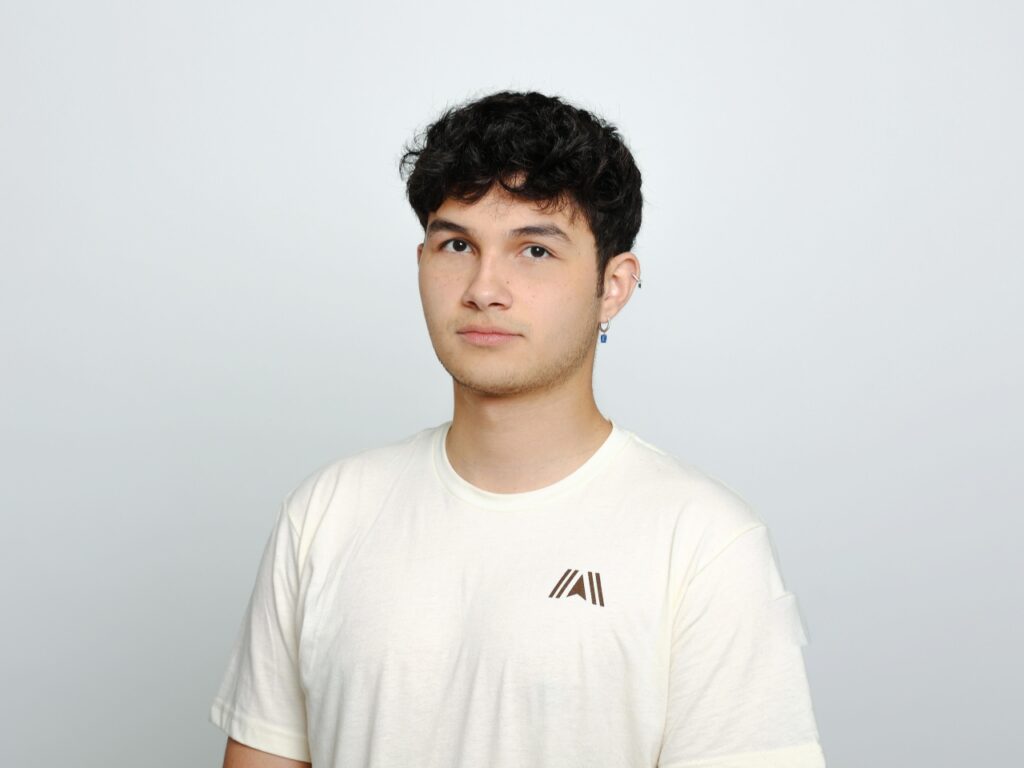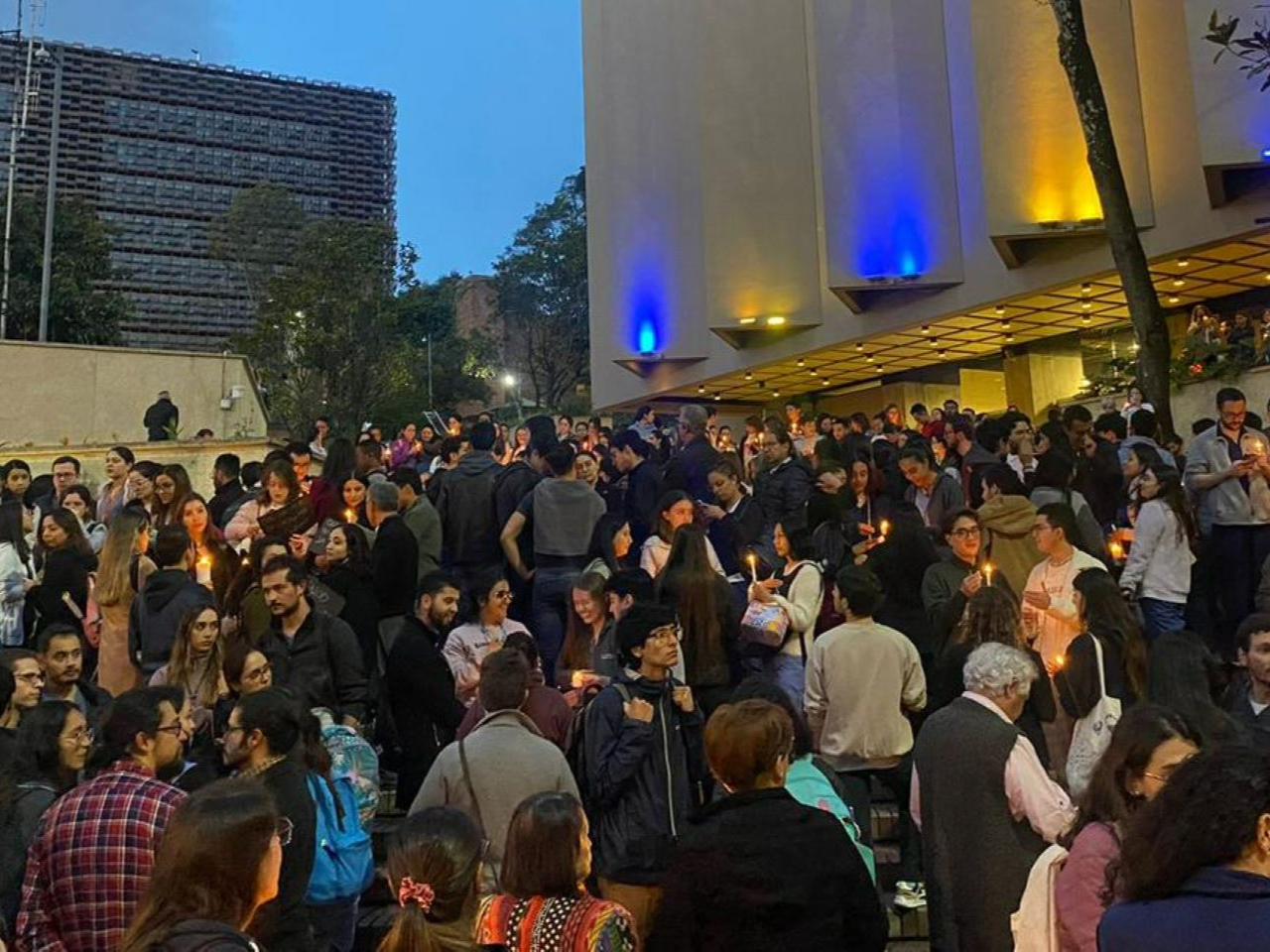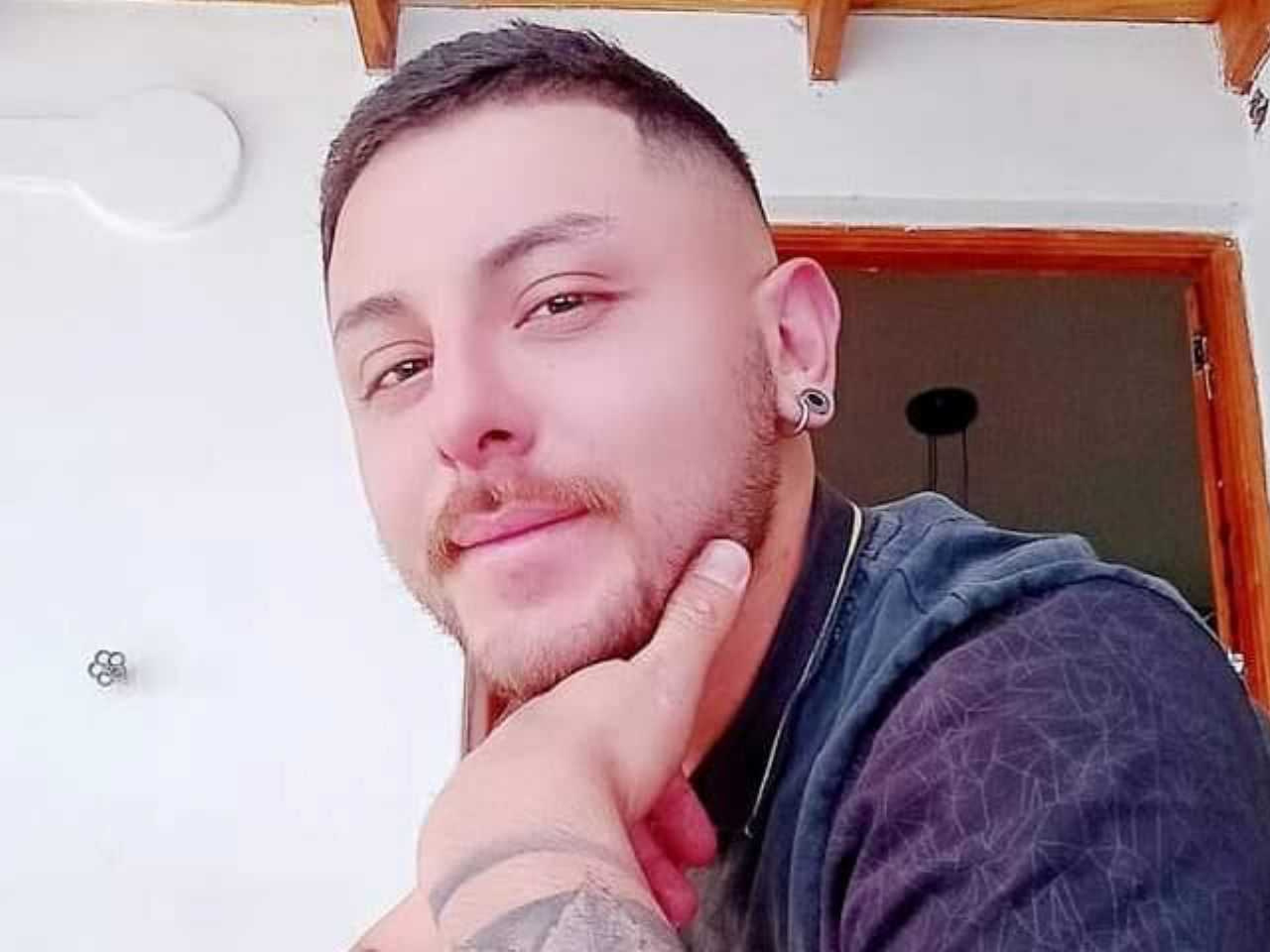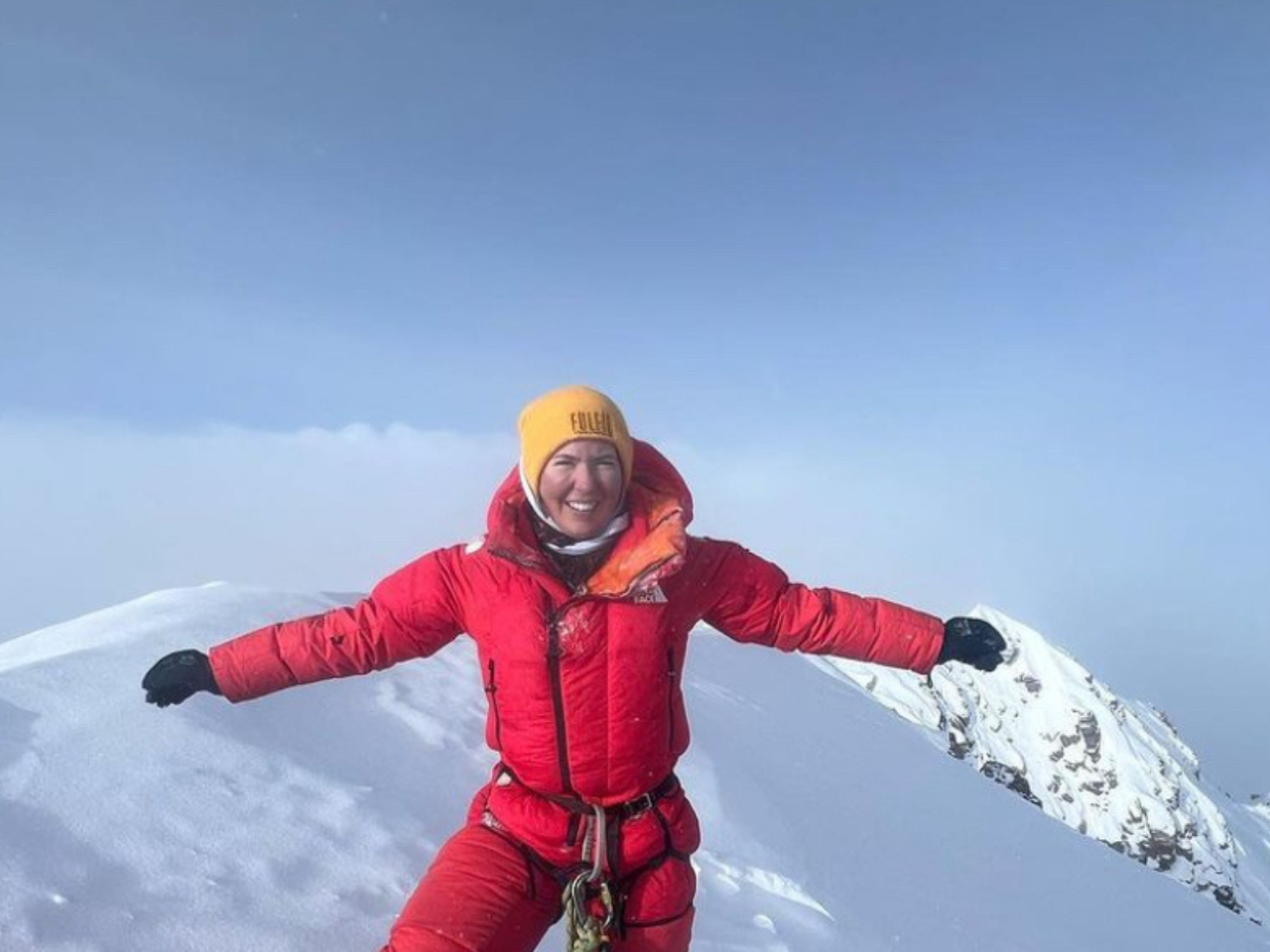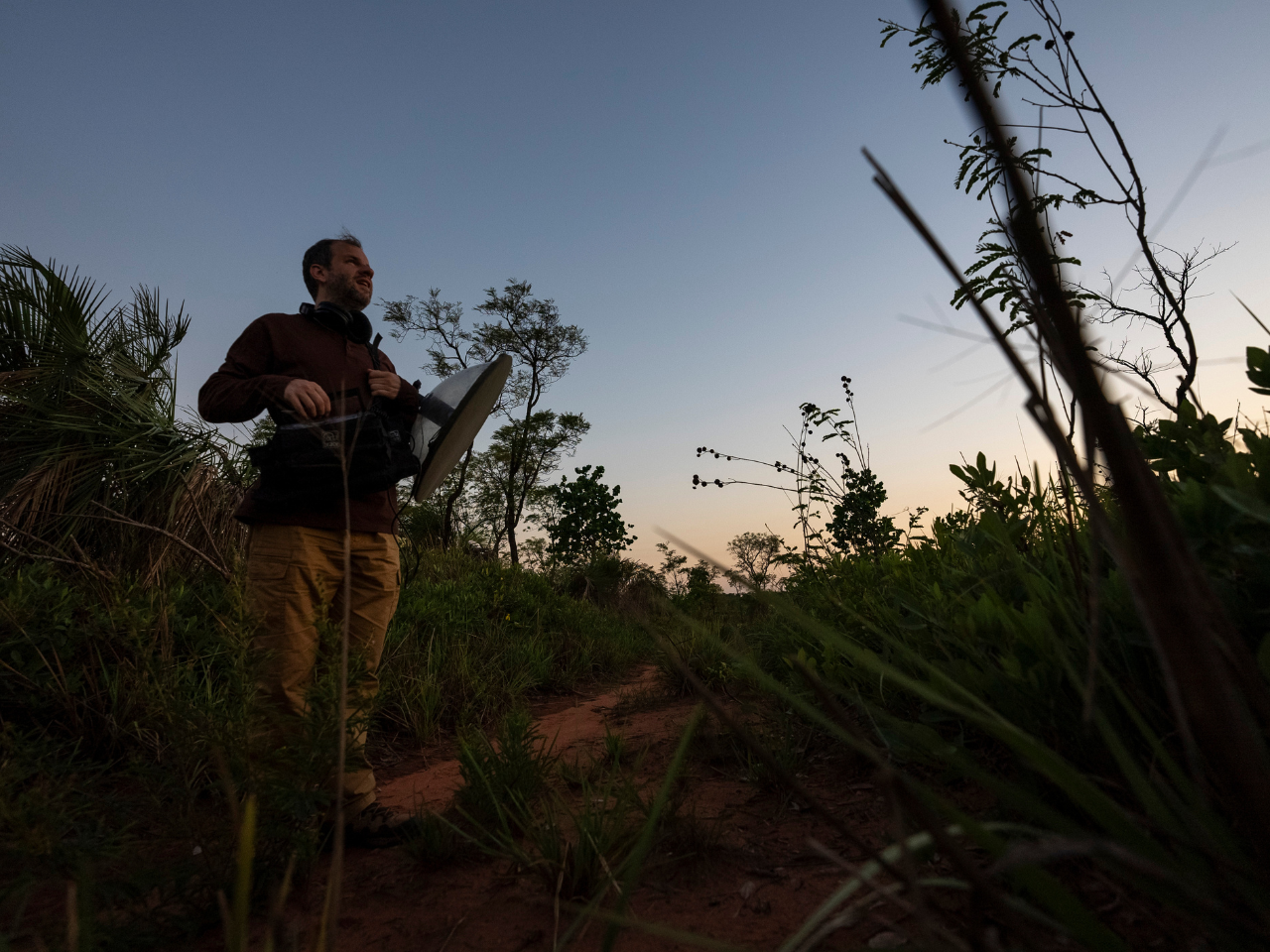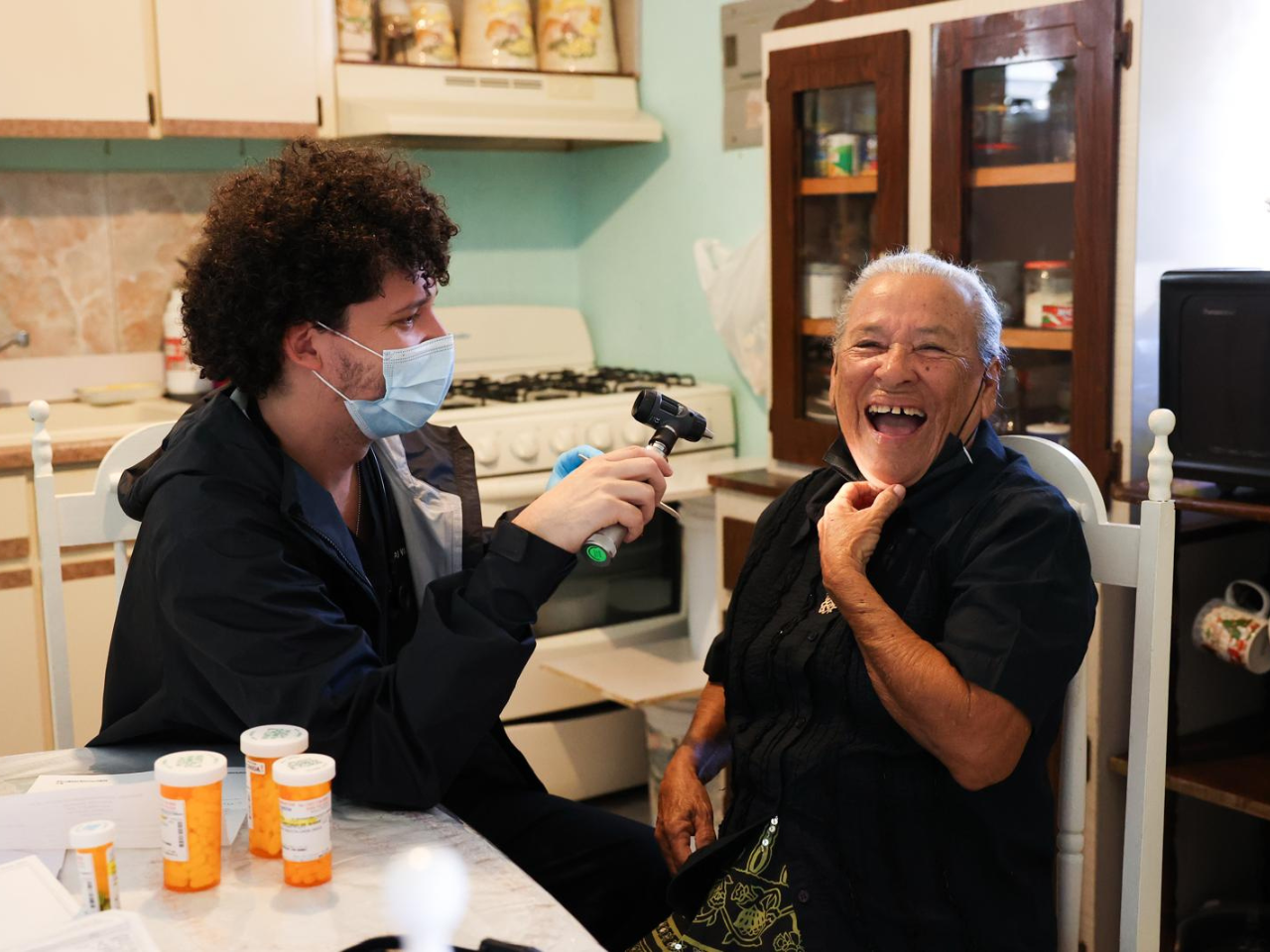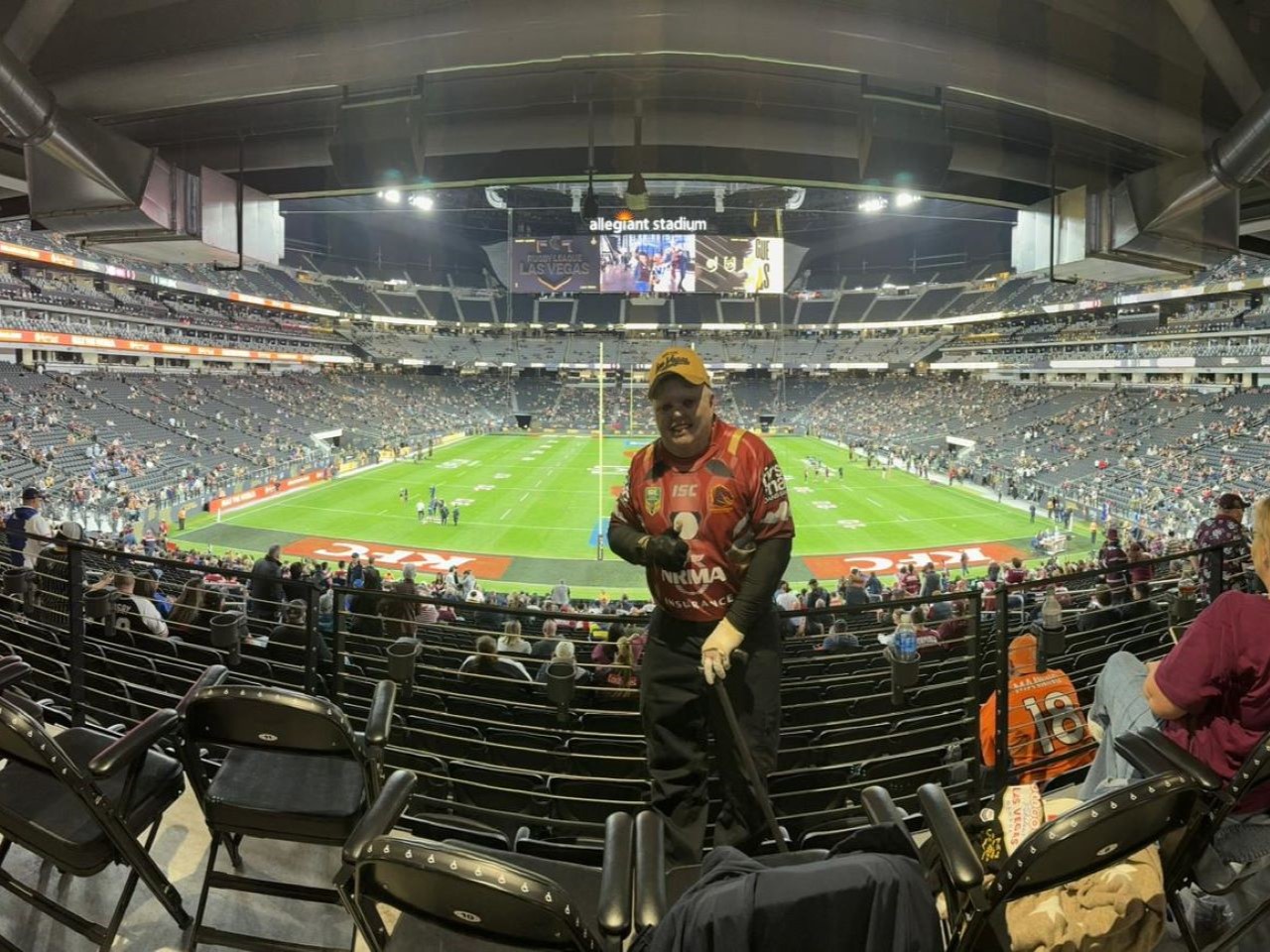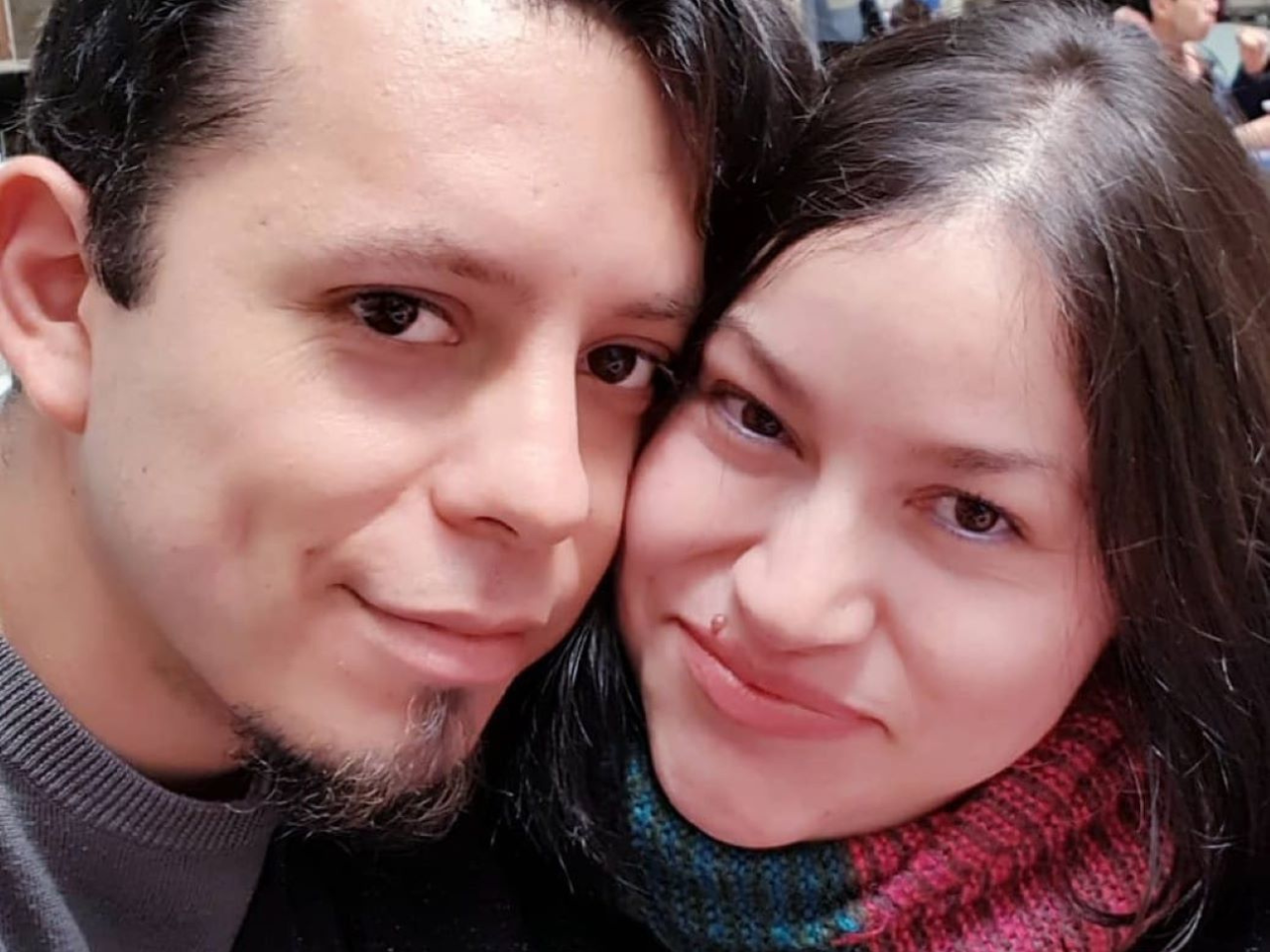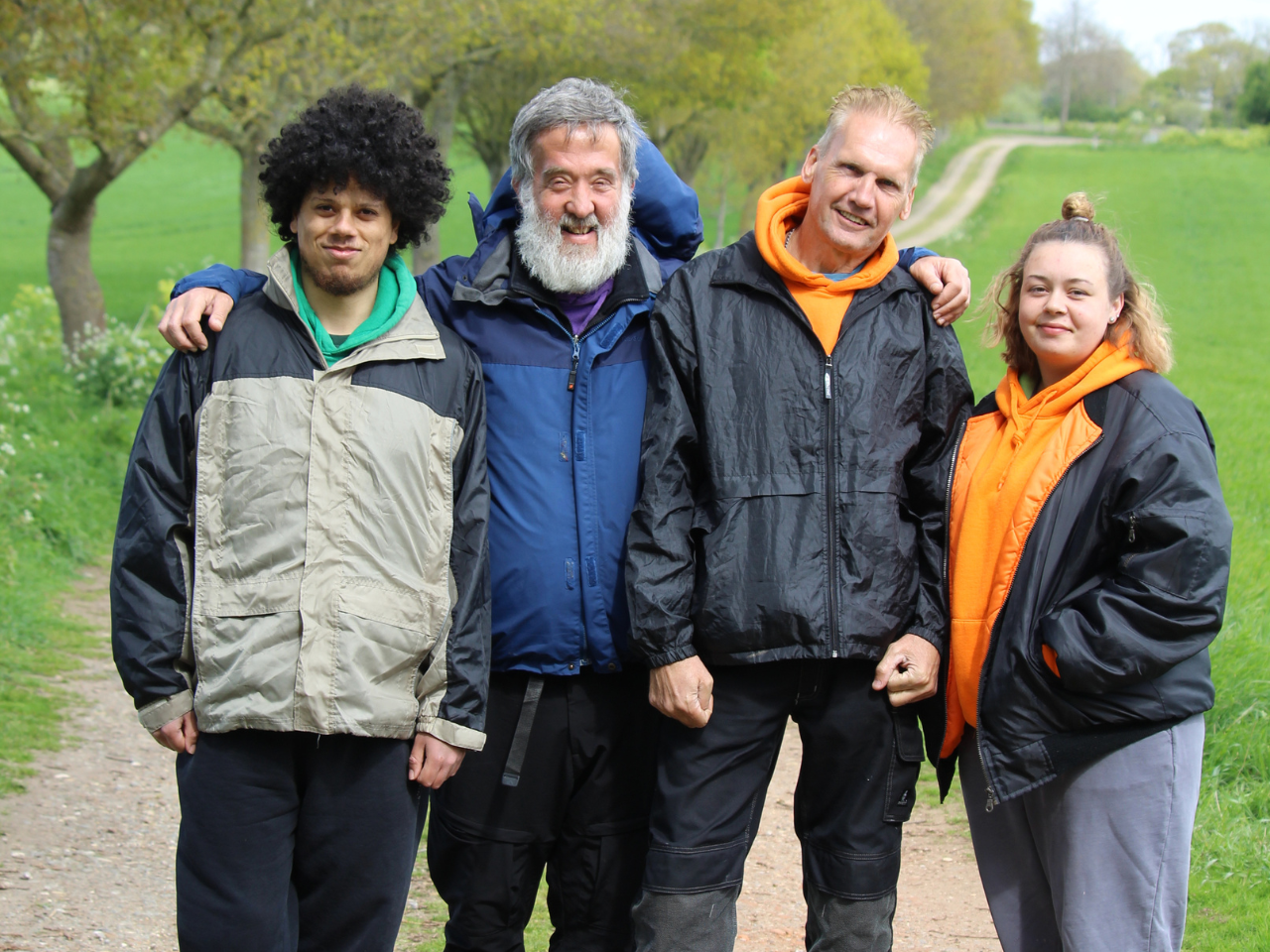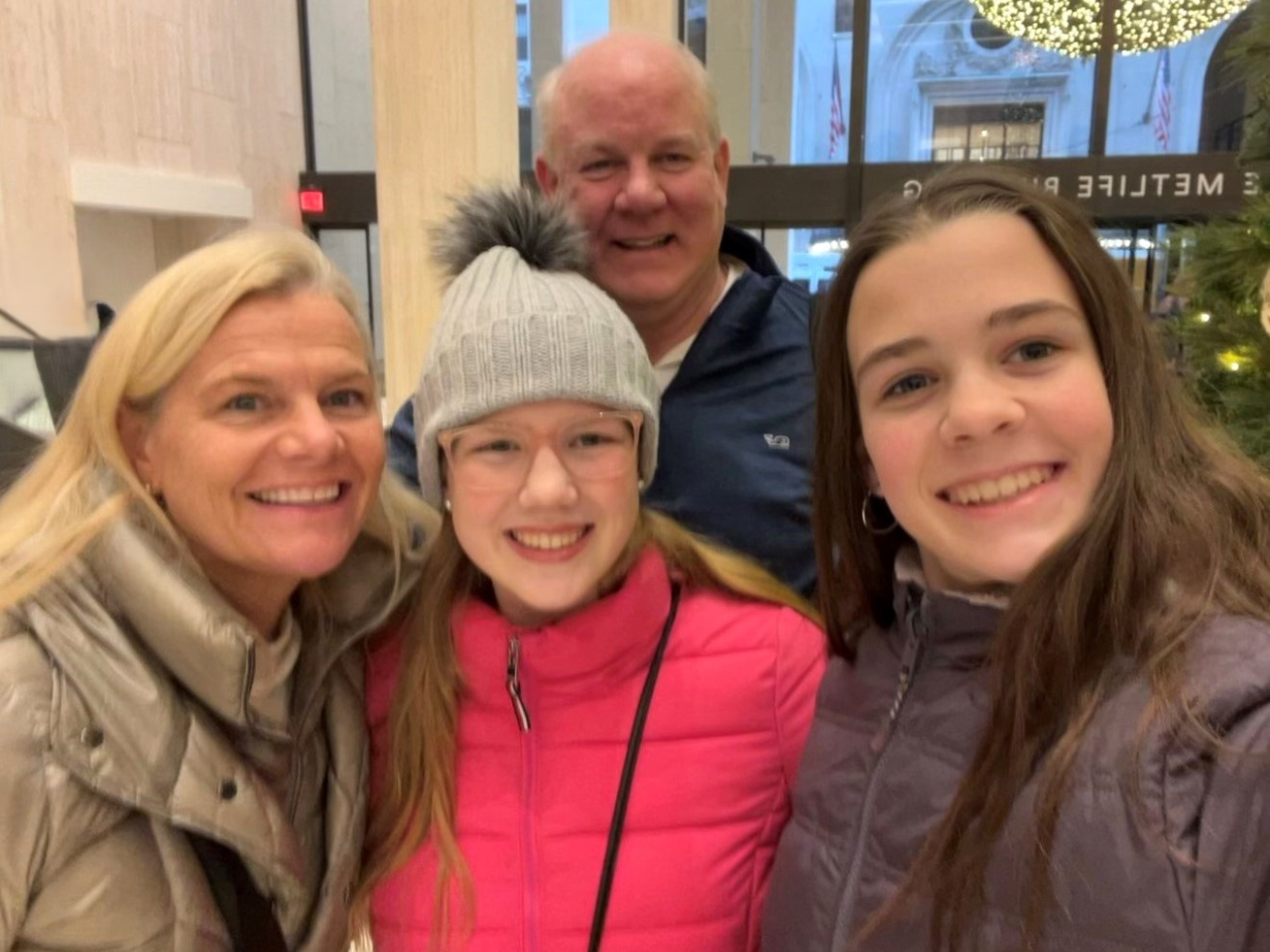Young Colombian with schizoaffective disorder wins podcast contest in the U.S., raises awareness for mental health
One early morning, I recognized a horrible energy shift in my room and felt pain in my back, which left me unable to move. Fear consumed me as I grabbed my cell phone and texted my mom in the next room. I wanted to yell but could not. “Ma, she’s here; there’s something in my room,” I messaged her.
- 1 year ago
October 15, 2024
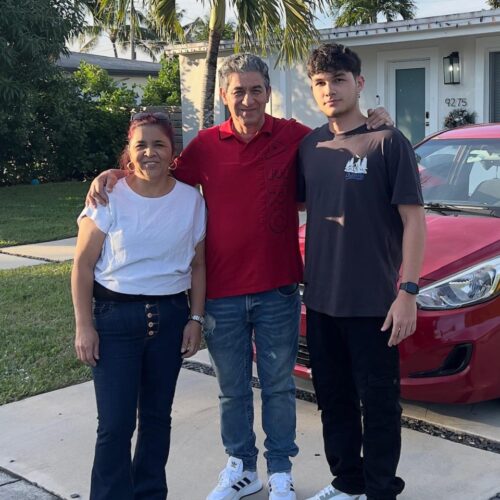
MIAMI, United States ꟷ For years, I have lived with schizoaffective disorder. In certain situations, places, and around particular people, I feel strange or sick. When the anxiety kicks in, something pricks my spine, sending a shiver down it. Many people believed I possessed a spiritual gift, interpreting the voices I heard as messages from entities drawn to my light and energy. At one point, the torment became unbearable, I could no longer endure it, pushing me to consider ending my life.
However, after undergoing life-changing treatment, my perspective shifted completely. This year, I won a major podcast contest in the United States, sharing my story to express the experience of hearing other voices in my head. Even though my disorder remains incurable, I learned to manage it and now help others to understand how to live with it.
Growing up in Colombia, young man faced imaginary friends and unsettling spirits
Growing up in San Javier, Medellín, one of Colombia’s most dangerous neighborhoods at the time, I rarely ventured outside. With no friends, I often sat on the balcony with my mom, playing and watching the kids outside. I had only one friend, Felipe, with whom I played nearly every game, from chess to Xbox.
One day, Felipe stopped visiting. Years later, I asked my mom about him, and she revealed that Felipe was an imaginary friend. This revelation stunned me and prompted me to question my sense of reality as Felipe always seemed like a real friend.
In another instance, I felt a woman speaking in my ear, calling my name and saying a phrase I could not understand. Her presence transformed the entire environment, making the room feel heavy, like entering a dangerous neighborhood. Physically, it felt like a stabbing pain in my spine. Although I had no idea what the voices intended, I sensed their presence nearby.
One early morning, I recognized a horrible energy shift in my room and felt pain in my back, which left me unable to move. Fear consumed me as I grabbed my cell phone and texted my mom in the next room. I wanted to yell but could not. “Ma, she’s here; there’s something in my room,” I messaged her. Believing it to be something spiritual, my mother came in with my dad. They turned on the light, and that is when I broke free and managed to move. As a result, at 17 years old, I still slept in my parents’ bed.
Overwhelmed by mental health, young man attempts suicide
Gradually, my poor mental health became severe. I started experiencing memories that did not belong, which led to intense depersonalization [a feeling of being outside of yourself, observing your thoughts, feelings, or actions from a distance]. It felt like someone else performed my actions and I could not remember doing things. One night, I woke up, stepped out of bed, and looked at my hands. Although I acknowledged it was my body, it did not feel like it belonged to me.
After a while, I regained my awareness and took control of my body, driving it forward instead of just being a passenger. During the period when my health declined, I began hating myself. I believed various entities shared my mind and struggled to understand them, losing complete control of my life. Exhausted, I thought, “I don’t fit in, and I can’t be with anyone.” Realizing my mental health continued to deteriorate, I began to consider ending it all.
Determined to end my life, I sent a WhatsApp message to my girlfriend. I confessed to her that I felt crazy and could no longer bear those emotions. At midnight, feeling overwhelmed, I took a massive amount of pills. Soon, I became sick and vomited. Seeing me in distress, my parents rushed me to the hospital. As I underwent treatment, I started to grasp everything that happened and how I might manage it.
I realized even though I suffered from a serious condition, management remained possible. My condition need not dictate my life. Without letting it dominate me, I learned to manage this part of who I am. Thus, I created a new life philosophy: “If this problem has a solution, why stress about it? And if it doesn’t, why stress if I can’t solve it anyway?”
Man embraces his true self through podcasting in Miami
Six months after my suicide attempt in 2022, I moved to Miami to study, hoping to leave the madness behind. I began to dislike the name Michael because it reminded me of the man who suffered so much. So, I changed it to Mike, a name I now associate with my new self.
A few months back, in an introductory communication class, my classmates and I received an assignment to create a podcast, with the option to submit it to an NPR station contest. During this time, my girlfriend suggested I keep my condition hidden from her friends to avoid judgment. While I understood her intention to protect me, her words felt like a blow to my ego. When it came time to choose a podcast topic, I embraced my true self. Bravely, I decided to share my story to convey what it felt like to walk in my shoes.
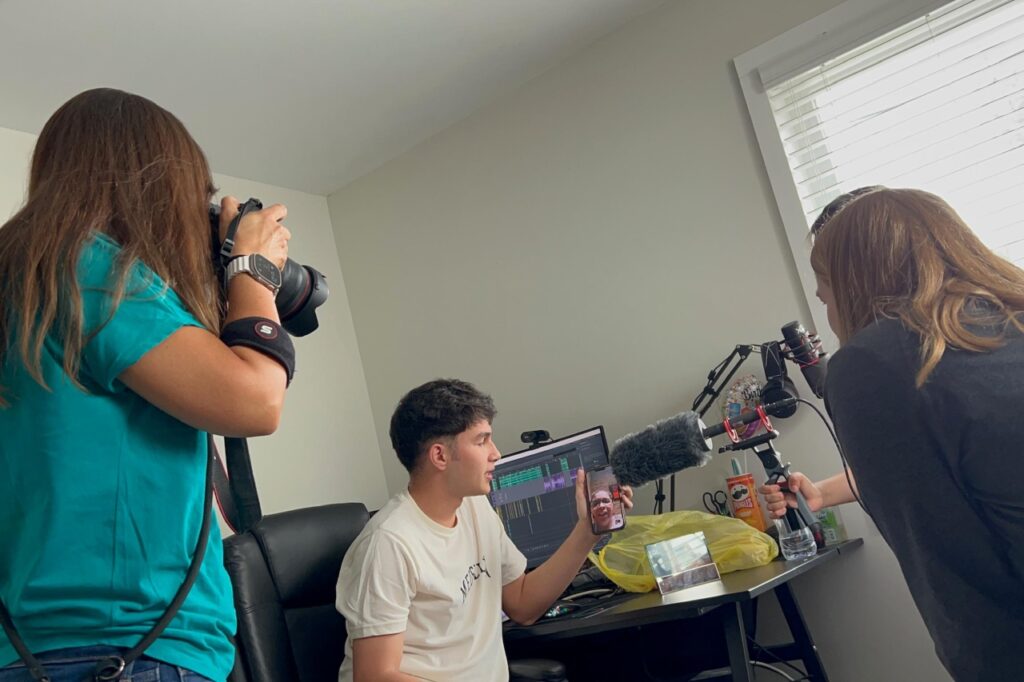
Creating the podcast became a cathartic and liberating experience. It took me a month, and I found it incredibly exciting. My girlfriend supported me throughout the process, staying with me during recording sessions and being the first to listen to it. After finishing, I took a few days before bringing myself to play it again.
Alone in my room, I put on my headphones and pressed play. I overlooked the voices I included during editing and felt startled to hear them as if they were inside my head. As I burst into laughter at the scene, the moment faded. At that point, I realized I created something powerful, believing I could win the contest.
Man wins NPR’s College Podcast Challenge, raises mental health awareness
At 8:00 a.m., a month before the winner’s announcement, I received a call saying they selected me as one of 10 finalists. At that moment, I realized I achieved my goal of raising awareness, regardless of whether I won. Later, my teacher discovered my victory, but she kept it a secret. She invited me to her class to motivate her students. When I arrived, I saw many people, including those from NPR and the other finalists. As I began to talk, they interrupted and announced, “Michael, you won.”
I became speechless, unable to articulate myself in either English or Spanish. In disbelief, it felt like floating. I was living my dream. As I noticed people waiting for me to say something, I blurted out, “Guys, this is how I made $5,000.” Everyone laughed. Immediately after leaving, I video-called my mom in Colombia. When she started crying, I felt emotional too, with tears streaming down my face. Even my dad became emotional.
I broke down seeing them this way, feeling disarmed yet incredibly happy. Winning the contest will help me secure a talent visa to live in the United States and will lead to invitations to conferences and seminars. As a result, my life completely transformed. Now, I actively manage my condition, which has no cure, and will stay with me for life. Mainly, I experience auditory hallucinations [sensory perceptions of hearing noises]. My girlfriend adapted alongside me. Sometimes, while we sleep, I ask her, “Did you hear that?” If she says no, we recognize it was only in my mind.
We laugh about it and take it in stride. This occurs at least once a week. Sharing my story through the podcast and interviews, I help people see those with similar conditions in a different light. Everyone faces their problems. While some people cope better than others, I strive to dispel the notion that individuals with schizophrenia or its variants are dangerous. Although I identify as agnostic, I feel the universe, God, or some guiding force directs me. It will do what it needs to put me where I belong. Nevertheless, today, it means generating awareness through my story.

